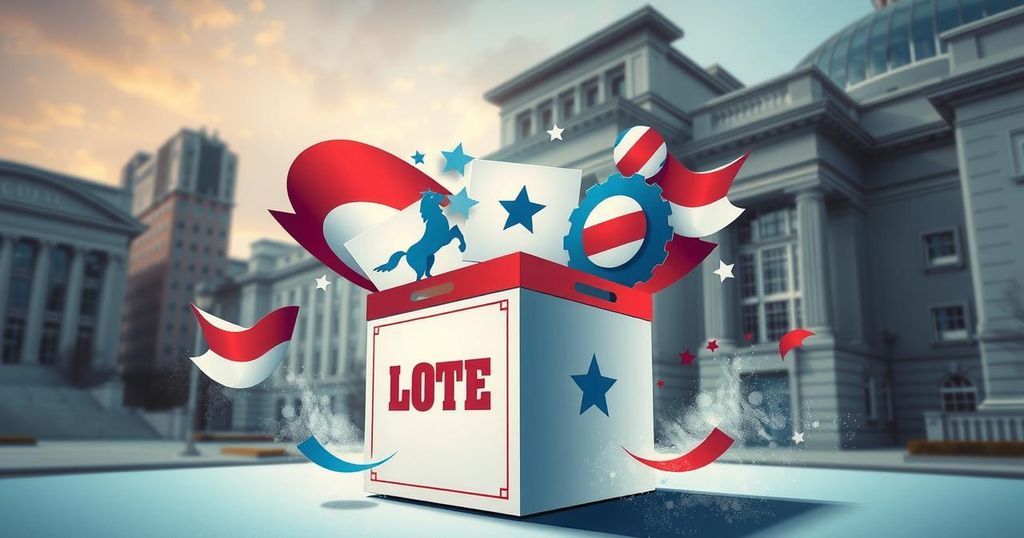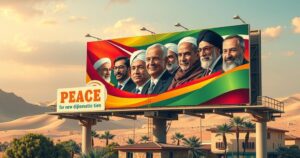Ecuador Faces Election Run-Off with Noboa and Gonzalez in Tight Contest

Ecuador’s recent election results indicate a tight race between incumbent President Daniel Noboa and challenger Luisa Gonzalez, leading to a likely run-off. With Noboa holding a slim lead amid rising violence and economic concerns, both candidates face immense pressure to address these pressing issues. Gonzalez emerged surprisingly strong, indicating a potential shift in voter sentiment as both sides prepare for a fiercely contested second round.
In the recent electoral contest in Ecuador, incumbent President Daniel Noboa narrowly maintained a slight lead, securing 44.3% of the votes compared to rival Luisa Gonzalez’s 43.8%, as over 90% of ballots were counted. Gonzalez claimed victory in forcing a run-off election by achieving what she described as a “statistical tie.” Despite pre-election forecasts favoring Noboa, the results signify a referendum on his handling of the nation’s economic challenges and escalating violence.
Ecuador has witnessed a dramatic rise in crime rates, transforming from a relatively safe nation to one of high danger due to drug cartel activity. Noboa’s term in office has been marked by emergency declarations, military deployment to combat violence, and an increase in his executive powers. On election day, he ensured security by positioning armed soldiers at voting sites and closing borders with Colombia and Peru to maintain order.
Both candidates faced significant security risks with special forces accompanying them at public gatherings in light of past violence towards politicians. Gonzalez expressed her apprehension, stating, “We’re only human. Of course, you feel afraid.” Fortunately, the election day witnessed only minor disturbances, such as violations of the imposed alcohol ban. Although official results are still being finalized, supporters from both camps celebrated their respective campaigns across major cities.
Noboa, at just 37 years of age, is among the youngest world leaders, leveraging a dynamic social media strategy that combines youthfulness with a strict approach to national security. In contrast, quality of life and trust in the government are critical themes in Gonzalez’s campaign, where she emphasizes the need for efficient social and economic policies. Political analysts express concern over escalating violence, suggesting it marks one of Ecuador’s most challenging periods in years.
Both candidates are contending with significant economic issues, including recent recession indicators and declining investment. Noboa has sought support from international agencies to stabilize the country’s fiscal situation. Gonzalez, while expressing willingness to continue IMF relations, stressed the importance of protecting working families from stringent economic measures imposed on them by external organizations.
Furthermore, the situation regarding migrants remains precarious as a potential influx from deportations presents worries concerning remittances. Gonzalez asserted the need for “appropriate” relations with international leaders and emphasizes defending citizens against mistreatment—an approach she believes Noboa has failed to uphold effectively.
In conclusion, the election runoff between President Daniel Noboa and Luisa Gonzalez illustrates a nation grappling with heightened violence and economic turmoil. Noboa’s narrow lead reflects a divided electorate seeking change, while Gonzalez’s momentum underscores the demand for a shift in leadership. The outcome of the upcoming runoff will not only determine Ecuador’s political future but also its strategies in addressing critical challenges related to security and economic stability.
Original Source: www.bigcountrynewsconnection.com





